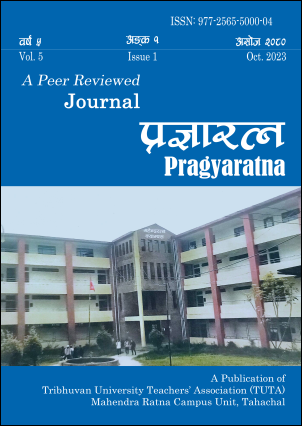Application of Human Urine in Vegetable Production in a School Garden: A Participatory Action Research
DOI:
https://doi.org/10.3126/pragyaratna.v5i1.59268Keywords:
Agriculture, drip-irrigation, nutrients, urine diversion toilet, urine fertilizerAbstract
Urine separation toilets are a possible route for achieving maximum recovery and recycling urine nutrients. However, using fresh urine as agricultural fertilizer is problematic and controversial concerning hygiene, storage, distribution, and supply. The intervention of this study was implemented at a public high school in Nepal. This study explores the applicability of urine diversion toilets in the school setting to improve organic vegetable production from the school's Eco-garden and the status of improving sanitation. A urine diversion toilet was constructed, and hardware and software-based participatory interventions were undertaken in the schools' Eco-garden. It was found that the urine diversion toilet is useful in preventing surface water from being polluted and improving students' sanitation and hygiene behavior. When cultivating vegetables using human urine fertilizer and animal fertilizer in different plots of the same area, it is found that human urine as fertilizer increases by 40% more production of the vegetables in comparison with using animal fertilizer. It is concluded that urine-fertilized plots have more vegetables with nutrients than animal fertilizer. Human urine application could be effectively used as a nutrient fertilizer, a new area of scientific research in the research frontier.




